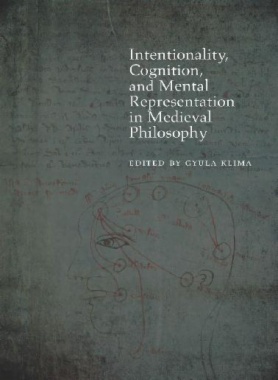It is commonly supposed that certain elements of medieval philosophy are uncharacteristically preserved in modern philosophical thought through the idea that mental phenomena are distinguished from physical phenomena by their intentionality, their intrinsic directedness toward some object. The many exceptions to this presumption, however, threaten its viability.
This volume explores the intricacies and varieties of the conceptual relationships medieval thinkers developed among intentionality, cognition, and mental representation. Ranging from Aquinas, Scotus, Ockham, and Buridan through less-familiar writers, the collection sheds new light on the various strands that run between medieval and modern thought and bring us to a number of fundamental questions in the philosophy of mind as it is conceived today.
- Cover
- Contents
- Acknowledgments
- Introduction: Intentionality, Cognition, and Mental Representation in Medieval Philosophy
- Concepts and Meaning in Medieval Philosophy
- Mental Language in Aquinas?
- Causality and Cognition: An Interpretation of Henry of Ghent’s Quodlibet V, q. 14
- Two Models of Thinking: Thomas Aquinas and John Duns Scotus on Occurrent Thoughts
- Thinking About Things: Singular Thought in the Middle Ages
- Singular Terms and Vague Concepts in Late Medieval Mental Language Theory: Or, the Decline and Fall of Mental Language
- Act, Species, and Appearance: Peter Auriol on Intellectual Cognition and Consciousness
- Ockham’s Externalism
- Was Adam Wodeham an Internalist or an Externalist?
- How Chatton Changed Ockham’s Mind: William Ockham and Walter Chatton on Objects and Acts of Judgment
- The Nature of Intentional Objects in Nicholas of Autrecourt’s Theory of Knowledge
- On the Several Senses of “Intentio” in Buridan
- Mental Representation in Animals and Humans: Some Late Medieval Discussions
- The Intersubjective Sameness of Mental Concepts in Late Scholastic Thought
- Mental Representations and Concepts in Medieval Philosophy
- Bibliography
- List of Contributors
- Index

